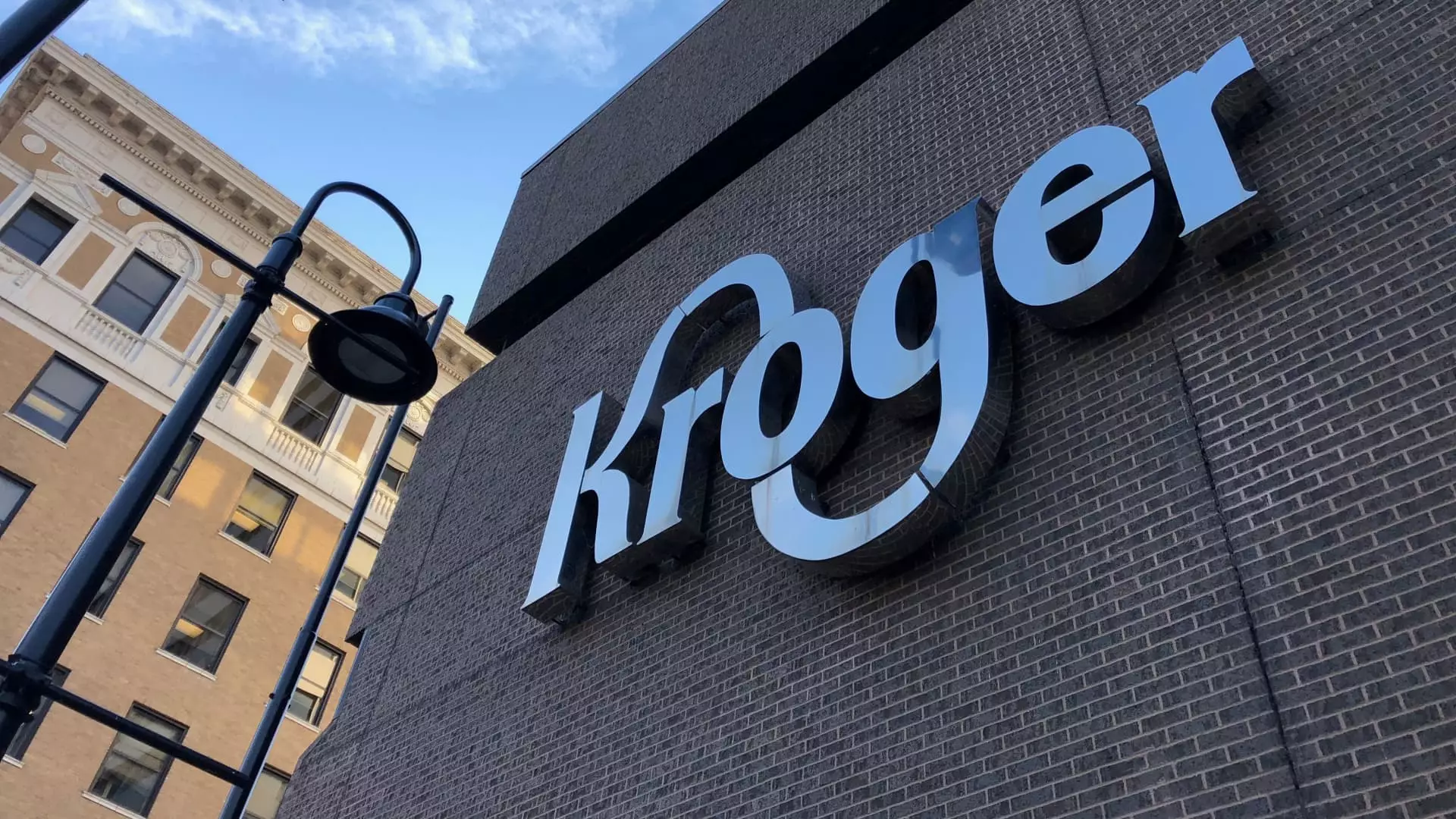In a move towards addressing the devastating impact of the opioid epidemic, Kroger announced on Friday that it has agreed to pay $1.2 billion to U.S. states, local governments, and Native American tribes. This settlement aims to resolve the majority of claims against the retail giant for its alleged role in fueling the crisis through lax oversight of its pill sales. While Kroger maintains that the settlement does not denote an admission of wrongdoing or liability, it signifies a step towards accountability and a commitment to addressing the issue at hand.
The settlement announced by Kroger seeks to achieve a “full resolution” of all claims brought forth by states, local governments, and Native American tribes. By reaching such an agreement, the company aims to bring closure to the affected parties and contribute to the efforts of combating the opioid epidemic. However, it is important to note that the settlement does not absolve Kroger from potential future claims and lawsuits relating to opioids that are not covered by this final agreement. Kroger remains firm in its commitment to vigorously defend against any such claims in the future.
A Financial Commitment to the Cause
Kroger’s pledge involves a substantial financial commitment of $1.2 billion to U.S. states and local governments, with an additional $36 million allocated to Native American tribes over an 11-year period. The company’s second-quarter earnings were significantly impacted by this settlement, as it incurred a $1.4 billion charge that covered both the settlement amount and associated legal fees. This financial commitment demonstrates Kroger’s acknowledgment of the responsibility it bears and its willingness to contribute towards addressing the harm caused by the opioid crisis.
The opioid epidemic has ignited a series of legal battles across the United States as state and local governments strive to hold drug companies and wholesalers accountable for their alleged contributions to the oversupply of prescription drugs. Thousands of lawsuits have been filed against these entities, resulting in numerous settlement agreements aimed at providing restitution and funding initiatives for prevention, treatment, and recovery. Kroger’s settlement follows in the footsteps of other major retail pharmacy chains, such as Walgreens, CVS, and Walmart, all of whom reached nationwide settlement agreements in the past year.
The gravity of the opioid crisis cannot be overstated. From 1999 to 2020, over 564,000 people lost their lives to overdoses involving opioids, both prescription and illicit. Initially, most deaths were linked to prescription drugs, prompting various stakeholders to implement measures to restrict their abuse and availability. However, this mitigation led to an alarming shift, as individuals with opioid use disorder turned to heroin, a substance more potent and deadly than its prescription counterparts. The devastating toll on lives and communities necessitates a comprehensive response to address not only the supply of opioids but also the underlying issues of addiction and access to treatment.
Industry-Wide Settlements
Kroger’s settlement is part of a broader trend across the retail pharmacy industry in response to the opioid crisis. Walgreens, in November of the previous year, agreed to a $4.95 billion settlement, resolving all opioid claims brought by U.S. states, local governments, and tribes. The retail giant also settled with West Virginia, a state heavily impacted by opioid-related overdose deaths, for $83 million in January. CVS followed suit in November, agreeing to pay $5 billion to resolve opioid-related lawsuits brought against them. Additionally, CVS reached a settlement of $82.5 million with West Virginia. Walmart joined the ranks in December, with a $3.1 billion nationwide settlement agreement with the aim of resolving opioid-related lawsuits filed by U.S. states and local governments. Walmart also reached a $65 million settlement with West Virginia. While Rite Aid has yet to reach a nationwide settlement, it did agree to pay $30 million to West Virginia in the fall of the previous year. However, recent reports suggest that Rite Aid is preparing to file for bankruptcy, potentially using this approach to restructure its debt and address ongoing opioid litigation.
A Step Towards Accountability
Kroger’s $1.2 billion settlement represents a significant step towards accountability in the face of the opioid epidemic. While the company maintains its innocence and refusal of liability, its financial commitment to affected parties demonstrates a recognition of the harm caused and a willingness to contribute to addressing the crisis. With the wider retail pharmacy industry also reaching settlement agreements, there is hope that these collective efforts will enable communities to navigate the path towards recovery more effectively. It is imperative to continue supporting initiatives that focus on prevention, treatment, and support for individuals affected by opioid use disorder. Only through collaborative and sustained actions can we hope to overcome the far-reaching consequences of this devastating crisis.


Leave a Reply